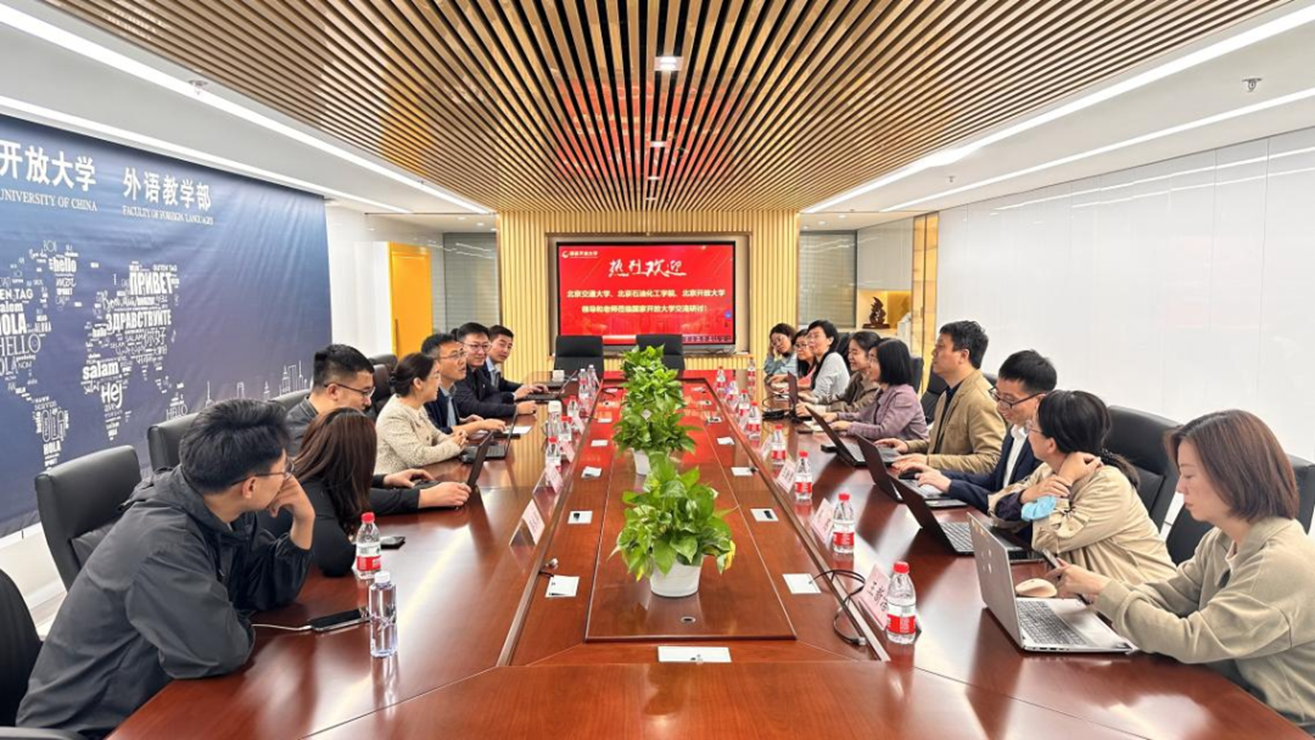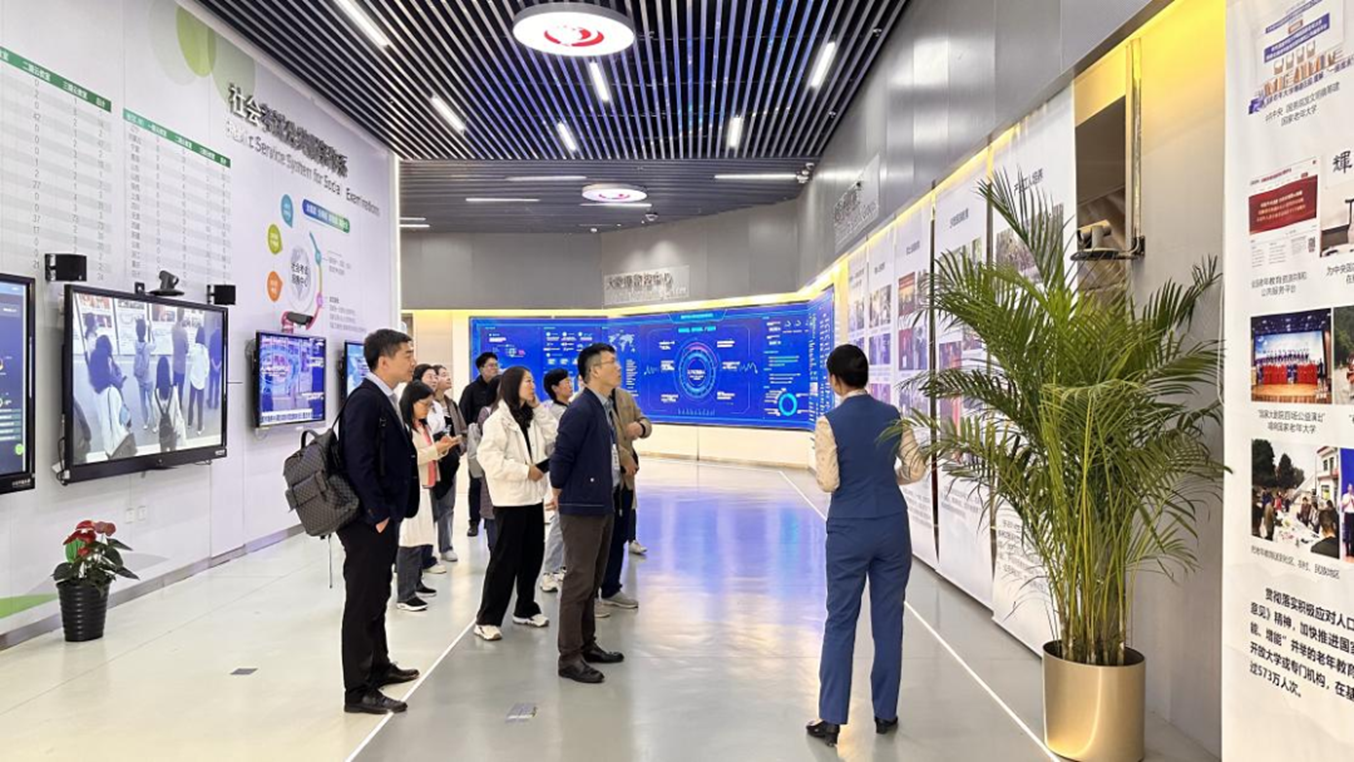 On 1 November, 2023, the Open University of China (OUC) hosted a seminar to welcome a delegation of 14 scholars and professionals, including Professor Niu Yingli from the School of Physical Science and Engineering at Beijing Jiaotong University; Vice Dean Wang Xiumei from the Zhiyuan School of Liberal Arts at the Beijing Institute of Petrochemical Technology; Wang Qinyong, an assistant at the Network Information Centre at Beijing Open University; and Wang Ke, the regional head of iFLY TEK for Beijing, Tianjin, and Hebei.
On 1 November, 2023, the Open University of China (OUC) hosted a seminar to welcome a delegation of 14 scholars and professionals, including Professor Niu Yingli from the School of Physical Science and Engineering at Beijing Jiaotong University; Vice Dean Wang Xiumei from the Zhiyuan School of Liberal Arts at the Beijing Institute of Petrochemical Technology; Wang Qinyong, an assistant at the Network Information Centre at Beijing Open University; and Wang Ke, the regional head of iFLY TEK for Beijing, Tianjin, and Hebei.
The event was chaired by Vice Dean Zheng Jipeng from the OUC's Faculty of Foreign Languages.

Zheng Jipeng examined the OUC’s historical operations, societal contributions, educational characteristics, and development philosophy. He also concentrated on central initiatives like executing the national digital education strategy. Additionally, he discussed the development of a smart foreign language teaching system, emphasising the practical requirements for English in open education. Zheng explored teaching reform strategies, the establishment of a smart education system, and the current impacts and accomplishments.
During the meeting, key personnel responsible for pertinent programmes and educators from the guest institutions exchanged insights on various innovative educational approaches. Topics discussed included the development of self-adaptive systems using knowledge graphs, the application of digital tools in teaching, and the workings of mechanisms for educational reform. Xiong Ying, vice dean of the Faculty of Foreign Languages, provided a detailed account of the experiences gained in developing self-adaptive learning course resources for the English programme.
The participating teachers further engaged in discussions on the critical need for integrating digitalisation into teaching, the practicality of graph-based programme design, the evolution of teachers' roles amid digital reform, and the importance of harnessing the teaching team to support this work.

The visiting educators unanimously conveyed that the exchange provided them with a fresh perspective on the OUC and allowed them to gain an in-depth understanding of the digital advancements in the OUC's foreign language education. They expressed a desire for more such interactions and dialogues for shared growth in pedagogy, technology, and administration, aiming to develop digital teaching systems with their own unique features.
By OUC